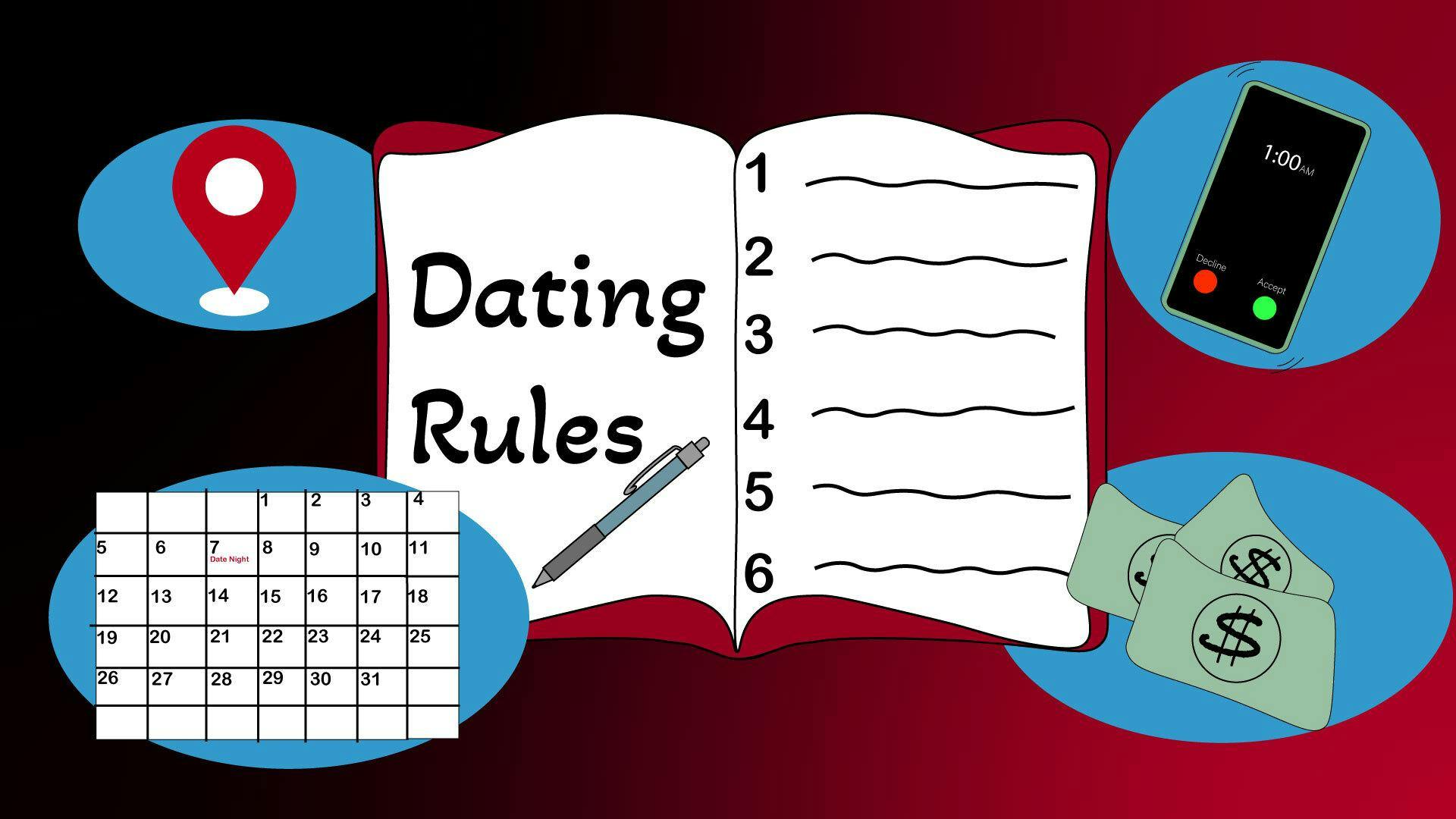Dating rules and boundaries in relationships have been around for ages. More recently, however, social media has stirred up discussions about personal dating rules when TikTok users started posting their own guidelines that "make or break" a relationship.
In this trend, many users type out some of their own rules in their iPhone's Notes app and then run through each idea, explaining their reasoning and providing examples. Some common rules include not being friends with someone of the opposite gender, sharing locations 24/7, one partner paying for everything and sharing social media passwords with each other.
But some of these requirements have become subject to controversy among viewers, including many Michigan State University students.
Fisheries and wildlife sophomore Paige Greene said that when it comes to someone having certain “make or break” rules for dating, she understands why the need might arise to provide structure.
“I can maybe like understand when it comes to maybe like personalities," Greene said. "So like I’d break it if he or she was a past cheater, or if they're like disloyal or something like that. (I) can understand having some boundaries.”
On the other hand, chemical engineering sophomore Chase Roland said that it depends on what the particular rule is, as he regards some to be reasonable enough to be integrated into the relationship.
“Some things I feel like are reasonable and then some things are just like, ‘why? Why does that really matter?’” Roland said.
But not everyone has rules that they expect their partner to abide by in order for the relationship to function. Roland said he doesn't have any specific rules he emphasizes.
“I feel like as long as we can like discuss it, and we don't like, act like children, I feel like it's chill," he said. "I don't really care what they do."
Graphic design sophomore Alana Alexander personally only believes in one rule: being fully committed to each other, and only each other.
“If you're with me, then you're with me, if that makes sense,” Alexander said. “So that means if you're entertaining anybody else, then take me out of the equation. And obviously, like your feelings are your feelings so you do you, but again, if we're going to be in a relationship, it’s going to be a 'you and I' type thing.”
The trend on social media emphasizes that rules written by the users are “make or break," if any one of the listed is broken, the relationship will immediately end.
Alexander said she agrees with the premise of the trend. However, Greene feels as though it depends on the severity of the action committed and what rule was broken.
“If you have an issue like location, like you have to have that rule and then they break it, you need to like talk like ‘why did you break it when you know that was a rule for me? What did you do?’” Greene said. “(I) feel like it could depend, like if they cheated, then I can very much understand, that's a complete deal breaker for many people and I can very much understand. But also there's a flip side of you need to talk about it with your significant other because communication is like really key to understanding where your bounds are.”
Similarly, Roland said that it depends on how the rule was broken and the reaction of the partner.
“It's like all to a scale, like based on how they react to stuff," Roland said. "So it's like, if they just go off rails for the smallest thing, then yeah. “Like why? Let’s just end it now’. But if not, I’m willing to stick in a relationship.”
Greene noted that some of the relationship rules seen on social media are not valid, like ones dictating that their partner must be a specific race.
“There's some rules that (are) like, ‘I only date Asian women’," Greene said. "I feel like that can almost cross the line of almost like sexualizing a race or like making up (things). Like people say (things) like, ‘I only date Asians because they seem like submissive’ or something like that. That's racist and that's wrong. Just to judge a person just based off their race, when they could just be like a very cool person that you would want to hang out with or to date.”
Roland said he disagrees with the infamous rule of not allowing your partner to be friends with people of the opposite gender.
“It's one thing if they're super close and you can kind of see the flirtiness, or you can tell that one friend is kind of trying to get a little too close," he said. "But besides that, I think it's kind of unreasonable if they can't be friends, like a guy can't be friends with girls, girls can't be friends with guys.”
Support student media!
Please consider donating to The State News and help fund the future of journalism.
Alexander believes that certain rules can break the trust between partners by creating a level of discomfort in the relationship.
For Greene, rules can affect relationships in both positive and negative ways, but it all comes down to communication between partners.
“Some of them may be like really, like really weird," she said. "If you don't talk about these things beforehand, they can lead to like a really bad relationship that could end up breaking your heart or just end up in a really bad way. But I also know that some of these like rules tend to be helpful for people to make those boundaries like right away in the relationship, so it could be both good and bad.”
Discussion
Share and discuss “How MSU students perceive dating rules in the age of social media trends” on social media.







